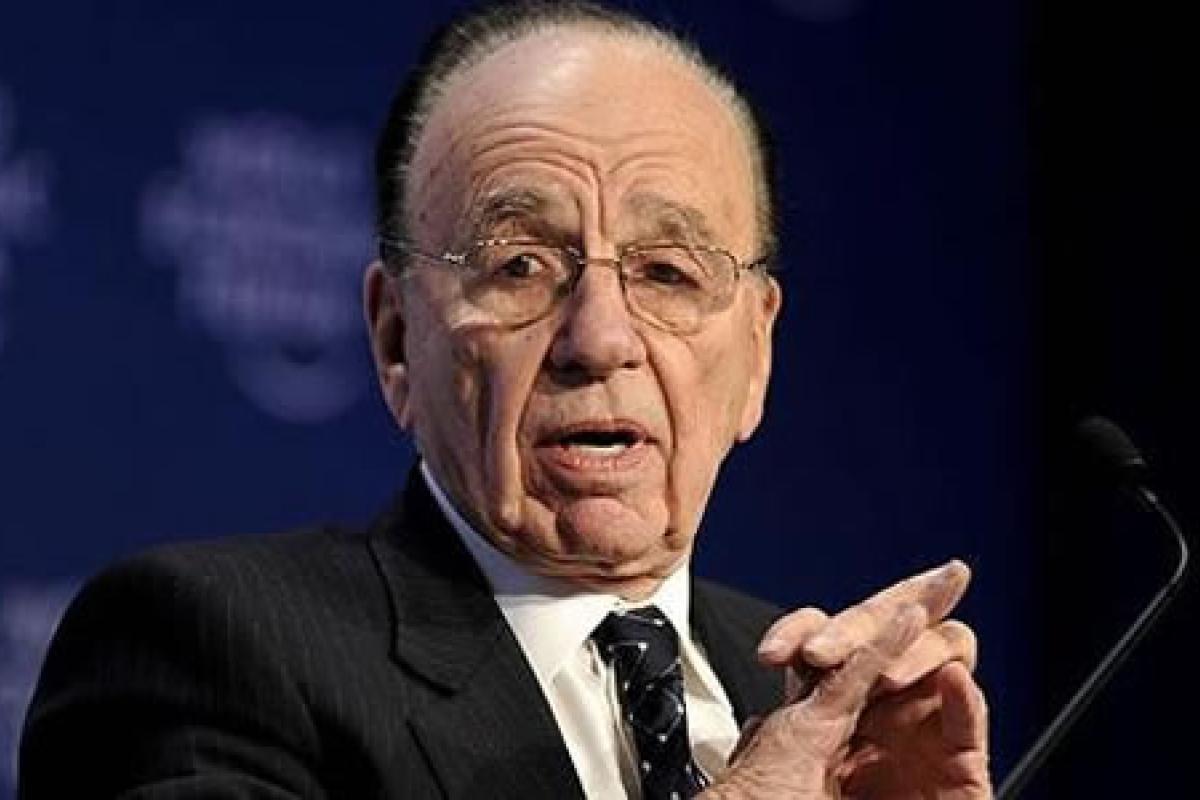I’ve always liked the parable of the Wizard of Oz. Fans of that fabulous film will recall the climactic moment. The Wizard, believed to hold total control over Oz by terrifying the Munchkins with his roars and omnipotence, is unmasked. As Dorothy, dog Toto, the Straw Man, Tin Man and Cowardly Lion approach the curtain shielding the Wizard, Toto pulls on a corner to reveal a small, crouching old man, pulling the levers of his power – the literal sound and wind and fury machines that have so successfully cowed the populace of Oz. He admits rather ashamedly that he’s not a bad man, just a bad wizard.
Leaving that final admission aside, the sight of a hunched old, bald man face covered with shaving foam reminded me, as so many similar situations do, of the Wizard of Oz. Why the analogy may be more apt than most people think is that Murdoch’s influence may never have been anything like as powerful as people thought it was. The notion that Murdoch could win elections has had a tenacious hold over the fevered imaginations of paranoid politicians and the commentariat for decades. Yet, as Peter Kellner, the opinion poll expert has written in more than one place, at more than one time, there is scant evidence that this was ever the case. In the recent issue of Prospect he quotes several substantial and authoritative surveys analysing opinions, voting patterns and newspaper readership with the conclusion that people seldom do what they are told – whether it’s voting or buying brands – something we in the communications business have always known. Furthermore, Daniel Finkelstein writing recently in The Times quoted an authoritative OFcom report which showed that only 8% of people claim to get their news from newspapers. Most people get their news from television and here, of course the BBC dominates. So much for news plurality.
This is certainly not to excuse the phone hacking or intrusion into privacy in general or paying the police which are a different, albeit extremely important issues. Nor it is in any way, an argument for the ghastly ‘plurality’ of news that exists in the US with all manner of crackpot news channels News Corps owned Fox being the largest and most insidious). It’s merely to take a cooler look at how influence works in the media. Britain has an extraordinarily diverse press – some would say vibrant, others call it raucous and nasty – but more different newspapers are sold here than anywhere else in the world. I think we have to thank Mr. Murdoch for breaking the stranglehold of the print unions in the 80s which ensured this diversity continued. Peter Preston writing recently on the Observer pointed out that when the News of the World was up for sale, the only bidder was Robert Maxwell and when The Times was up for sale, the bidder was the Mail Group (and we can imagine what they would have done with it). News International has subsidised The Times and the Sunday Times (some estimates are in the region of £40 million p.a.) and both, particularly the daily Times, are excellent papers. When – and I think it’s when rather than if – it’s sold, it will probably go to a Russian oligarch. I’d rather have Mr. Murdoch in charge.
